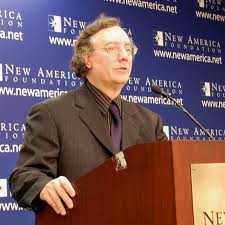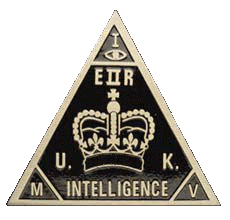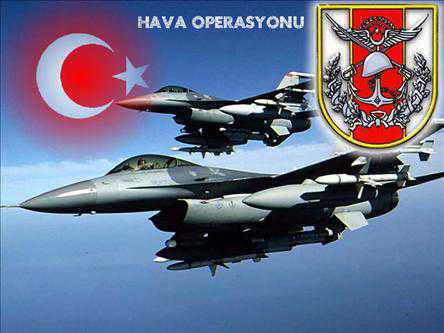 Juan Cole is a brand name that is no longer trusted. And that has been the case for some time for the Professor from Michigan. After warning of the “difficulties” with the Iraq War, Cole swung over to ply it with burning kisses on the day of the U.S. invasion of Iraq. His fervor was not based on Saddam Hussein’s fictional possession of weapons of mass destruction but on the virtues of “humanitarian imperialism.”
Juan Cole is a brand name that is no longer trusted. And that has been the case for some time for the Professor from Michigan. After warning of the “difficulties” with the Iraq War, Cole swung over to ply it with burning kisses on the day of the U.S. invasion of Iraq. His fervor was not based on Saddam Hussein’s fictional possession of weapons of mass destruction but on the virtues of “humanitarian imperialism.”
Thus on March 19, 2003, as the imperial invasion commenced, Cole enthused on his blog: “I remain (Emphasis mine.) convinced that, for all the concerns one might have about the aftermath, the removal of Saddam Hussein and the murderous Baath regime from power will be worth the sacrifices that are about to be made on all sides.” Now, with over 1 million Iraqis dead, 4 million displaced and the country’s infrastructure destroyed, might Cole still echo Madeline Albright that the price was “worth it”? Cole has called the Afghan War “the right war at the right time” and has emerged as a cheerleader for Obama’s unconstitutional war on Libya and for Obama himself.
Cole claims to be a man of the left and he appears with painful frequency on Amy Goodman’s Democracy Now as the reigning “expert” on the war on Libya. This is deeply troubling – on at least two counts. First, can one be a member of the “left” and also an advocate for the brutal intervention by the Great Western Powers in the affairs of a small, relatively poor country? Apparently so, at least in Democracy Now’sversion of the “left.” Second, it appears that Cole’s essential function these days is to convince wavering progressives that the war on Libya has been fine and dandy. But how can such damaged goods as Cole credibly perform this marketing mission so vital to Obama’s war?
Miraculously, Cole got just the rehabilitation he needed to continue with this vital propaganda function when it was disclosed by the New York Times on June 15 that he was the object of a White House inquiry way back in 2005 in Bush time. The source and reason for this leak and the publication of it by the NYT at this time, so many years later, should be of great interest, but they are unknown. Within a week of the Timespiece Cole was accorded a hero’s welcome on Democracy Now, as he appeared with retired CIA agent Glenn Carle who had served 23 years in the clandestine services of the CIA in part as an “interrogator.” Carl had just retired from the CIA at the time of the White House request and was at the time employed at the National Intelligence Council, which authors the National Intelligence Estimate.
It hit this listener like a ton of bricks when it was disclosed in Goodman’s interview that Cole was a long time “consultant” for the CIA, the National Intelligence Council and other agencies. Here is what nearly caused me to keel over when I heard it (From the Democracy Nowtranscript.):
AMY GOODMAN: So, did you know Professor Cole or know of him at the time you were asked? And can you go on from there? What happened when you said you wouldn’t do this? And who was it who demanded this information from you, said that you should get information?
GLENN CARLE: Well, I did know Professor Cole. He was one of a large number of experts of diverse views that the National Intelligence Council and my office and the CIA respectively consult with to challenge our assumptions and understand the trends and issues on our various portfolios. So I knew him that way. And it was sensible, in that sense, that the White House turned to my office to inquire about him, because we were the ones, at least one of the ones—I don’t know all of Mr. Cole’s work—who had consulted with him. (Emphases mine.)
That seems like strange toil for a man of the “left.” But were the consultations long drawn out and the association with the CIA a deep one? It would appear so. Again from the transcript:
AMY GOODMAN: Well, the way James Risen (the NYT reporter) writes it, he says, “Mr. Carle said [that] sometime that year, he was approached by his supervisor, David Low, about Professor Cole. [Mr.] Low and [Mr.] Carle have starkly different recollections of what happened. According to Mr. Carle, [Mr.] Low returned from a White House meeting one day and inquired who Juan Cole was, making clear [that] he wanted [Mr.] Carle to gather information on him. Mr. Carle recalled [his] boss saying, ‘The White House wants to get him.’”
GLENN CARLE: Well, that’s substantially correct. The one nuance, perhaps, I would point out is there’s a difference between collecting information actively, going out and running an operation, say, to find out things about Mr. Cole, or providing information known through interactions. (Emphasis mine.) I would characterize it more as the latter.
And later in the interview Carle continues:
On the whole, Professor Cole and I are in agreement. The distinction I make is it wasn’t publicly known information that was requested; it was information that officers knew of a personal nature about Professor Cole, which is much more disturbing.There was no direct request that I’m aware, in the two instances of which I have knowledge, for the officers actively to seek and obtain, to conduct—for me to go out and follow Professor Cole. But if I knew lifestyle questions or so on, to pass those along. (Emphasis mine.)That’s how I—which is totally unacceptable.
It would seem then that the interaction between the CIA operatives and Cole was long standing and sufficiently intimate that the CIA spooks could be expected to know things about Cole’s lifestyle and personal life. It is not that anyone should give two figs about Cole’s personal life which is more than likely is every bit as boring as he claims. But his relationship with the CIA is of interest since he is an unreconstructed hawk. What was remarkable to me at the time is that Goodman did not pick up on any of this. Did she know before of Cole’s connections? Was not this the wrong man to have as a “frequent guest,” in Goodman’s words, on the situation in the Middle East?
This is not to claim that Cole is on a mission for the CIA to convince the left to support the imperial wars, most notably at the moment the war on Libya. Nor is this a claim that the revelation about the White House seeking information on Cole was a contrived psyops effort to rehabilitate Cole so that he could continue such a mission. That cannot be claimed, because there is as yet no evidence for it. But information flows two ways in any consultation, and it is even possible that Cole was being loaded with war-friendly information in hopes he would transmit it.
Cole is anxious to promote himself as a man of the left as he spins out his rationale for the war on Libya. At one point he says to Goodman (3/29), “We are people of the left. We care about the ordinary people. We care about workers.” It is strange that a man who claims such views dismisses as irrelevant the progress that has come to the people of Libya under Gaddafi, dictator or not. (Indeed what brought Gaddafi down was not that he was a dictator but that he was not our dictator.) In fact Libya has the highest score of all African countries on the UN’s Human Development Index (HDI) and with Tunisia and Morocco the second highest level of literacy. The HDI is a comparative measure of life expectancy, literacy, education and standards of living for countries worldwide.
Whither the Left on the Question of Intervention?
None of this is all too surprising given Cole’s status as a “humanitarian” hawk. But it is outrageous that he is so often called on by Democracy Now for his opinion. One of his appearances there was in a debate on the unconstitutional war in Libya, with CounterPunch’s estimable Vijay Prashad taking the antiwar side and Cole prowar. It would seem strange for the left to have to debate the worth of an imperial intervention. Certainly if one goes back to the days of the Vietnam War there were teach-ins to inform the public of the lies of the U.S. government and the truth about what was going on in Vietnam. But let us give Democracy Now the benefit of the doubt and say that the debate was some sort of consciousness raising effort. Why later on invite as a frequent guest a man who was the pro-war voice in the debate? That is a strange choice indeed.
This writer does not get to listen to Democracy Now every day. But I have not heard a full-throated denunciation of the war on Libya from host or guests. Certainly according to a search on the DN web site, Cynthia McKinney did not appear as a guest nor Ramsey Clark after their courageous fact finding tour to Libya. There was only one all out denunciation of the war – on the day when the guests were Rev. Jesse Jackson and Vincent Harding who was King’s speechwriter on the famous speech “Beyond Vietnam” in 1967 in which King condemned the U.S. war on Vietnam. Jackson and the wise and keenly intelligent Harding were there not to discuss Libya but to discuss the MLK Jr. monument. Nonetheless Jackson and Harding made clear that they did not like the U.S. war in Libya one bit, nor the militarism it entails.
If one reads CounterPunch.org, Antiwar.com or The American Conservative, one knows that one is reading those who are anti-interventionist on the basis of principle. With Democracy Now and kindred progressive outlets, it’s all too clear where a big chunk of the so-called “left” stands, especially since the advent of Obama. In his superb little book Humanitarian Imperialism Jean Bricmont criticizes much of the left for falling prey to advocacy of wars, supposedly based on good intentions. And Alexander Cockburn has often pointed out that many progressives are actually quite fond of “humanitarian” interventionism. Both here and in Europe this fondness seems to be especially true of Obama’s latest war, the war on Libya . It is little wonder that the “progressives” are losing their antiwar following to Ron Paul and the Libertarians who are consistent and principled on the issue of anti-interventionism.
Democracy Now, quo vadis? Wherever you are heading, you would do well to travel without Juan Cole and his friends.
John V. Walsh can be reached at [email protected] After wading through Cole’s loose prose and dubious logic to write this essay, the author suspects that the rejection of Cole by the Yale faculty was the result of considerations that had little to do with neocon Bush/Cheney operatives.
www.counterpunch.org,





